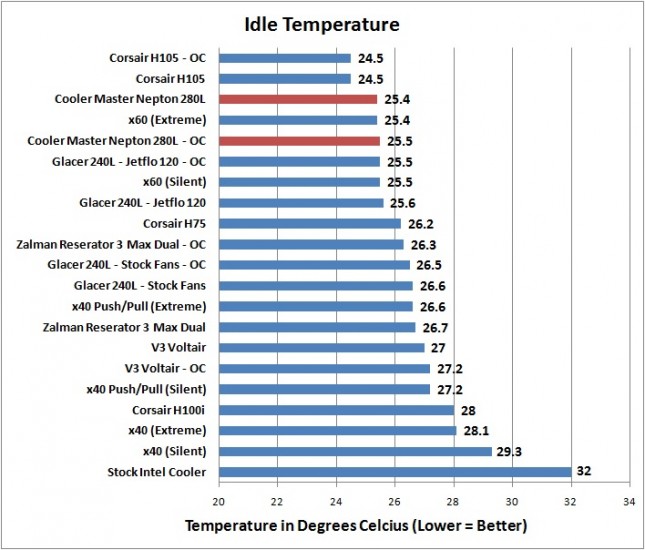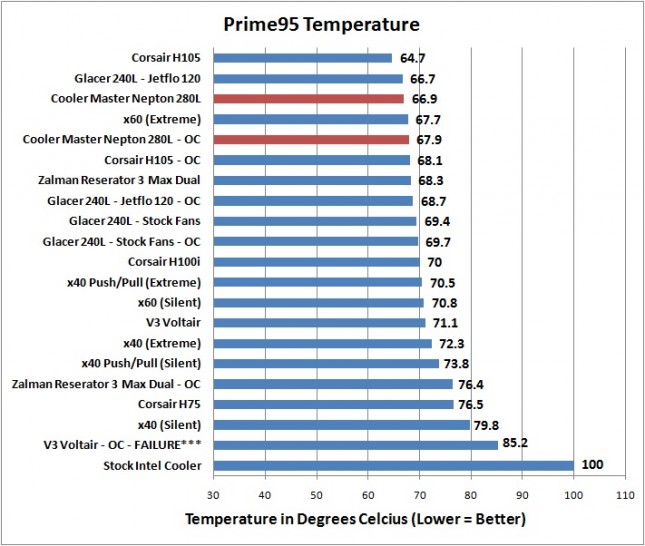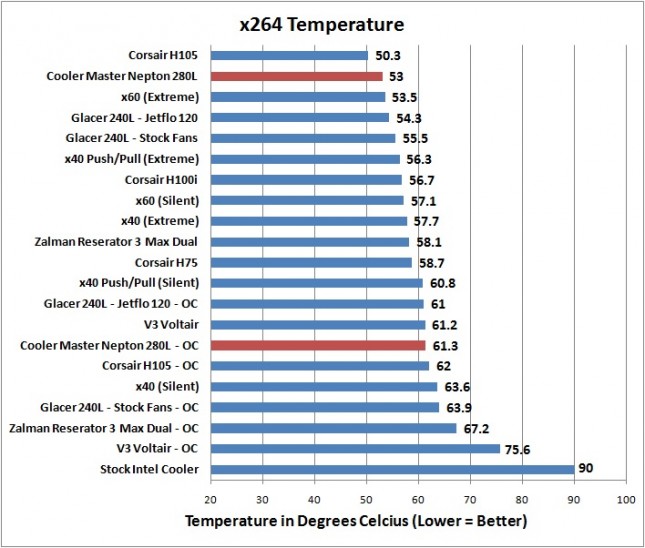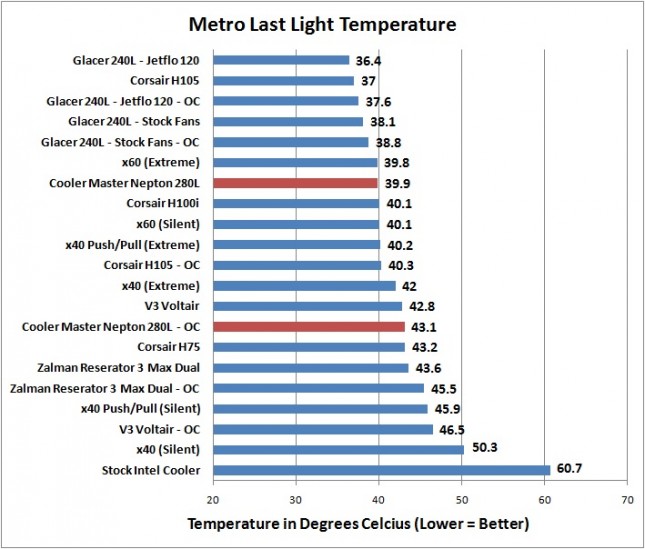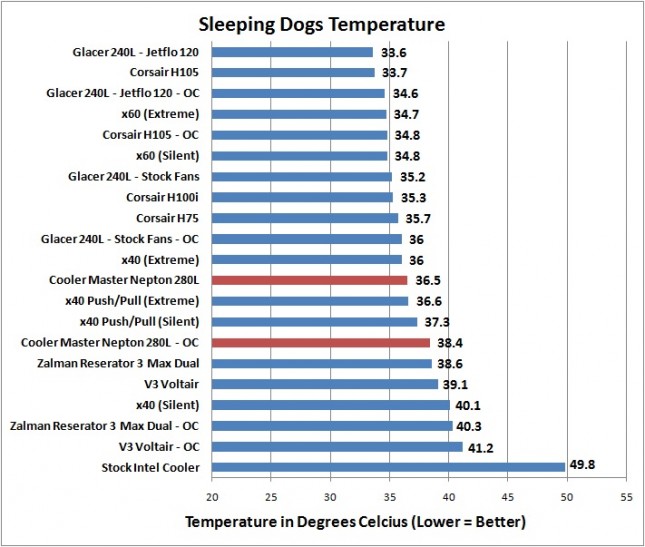Cooler Master Nepton 280L AIO CPU Cooler Review
Benchmarking the Nepton 280L
In the benchmarks that will be run, we used an Intel 4770k clocked at 3.5GHz with Turbo Boost and the low power state enabled. Turbo Boost allows the 4770k to hit up to 3.9GHz right out of the box. Many of the previous tests we chose not to overclock beyond the turbo frequency in order to show you what your average user would see, but we did find the limits of this particular processor without going too extreme on the voltage and will start to include those results. The 4770k will be overclocked to a 4.3GHz turbo boost at 1.270 volts, which is over the stock 1.193v. To push this particular 4770k stably to 4.4GHz required well over 1.4 volts, which the performance gains of a 100MHz increase was not worth that huge bump in voltage.
To record temperatures, we used Core Temp, logged the temperatures for 15 minutes or while each program was active, and averaged all 4 cores.
Benchmark wise, we will be using several synthetic and real-world benchmarks to perform normal, heavy, and extreme load. The benchmarks that Im going to use today include: Prime95, x264, 3DMark 2013 (Firestrike test only), Metro Last Light, and Sleeping Dogs. Prime95 will peg all four cores and eight threads to 100% with the In-Place Large FFT test, which will help us to understand exactly how hot this CPU can get with each cooler.
Ambient temperature during all testing was 74 degrees Fahrenheit.
I have reviewed several other liquid CPU coolers in the past and you will find them in the charts below for comparison purposes. I did not start overclocking the 4770k until after the Cooler Master Glacer 240L review, so not all coolers were tested under the increased stress of an overclock.
Idle
Prime95
X264
3D Mark 2013
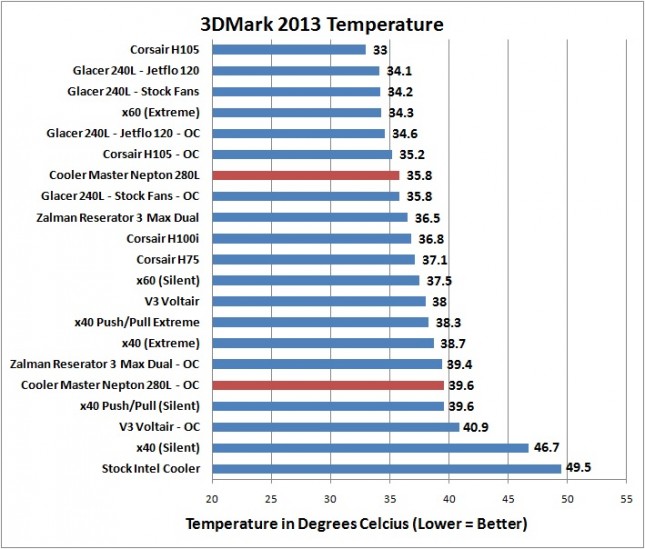
Metro Last Light
Sleeping Dogs
Overall Results: The Nepton 280L is mighty impressive, just as I had expected. There appears to be a ton of headroom in this cooler, should I want to overclock the processor further. In many applications, the Cooler Master Glacer 240L actually performed slightly better when paired up with the aftermarket JetFlo 120 fans. Bang for the buck, this one is definitely a winner!

